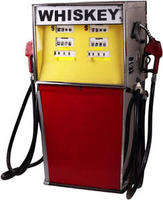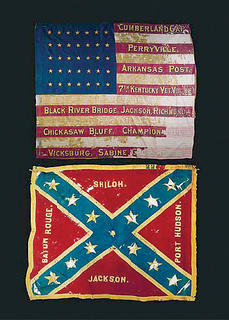
My good friend Frank, who I've written about before, used to be married to a woman named Donna. Donna had a close friend, Jim, who was gay. I say that in the past tense because Jim is no longer amongst the living. Frank and I used to try to get him to go straight, with no luck, so we finally gave up and accepted the fact that he was never going to be into women. Jim was really a very good guy and I always enjoyed his company.
Whenever Frank and Donna had parties, Jim would be there. He really made the parties more fun. Frank would do his ostrich impersonation. He could do a fly, a frog and probably a couple more. They were fun times.
Early one evening, Frank & Donna had a dinner party. He was always a good cook and every time we went for dinner, he made some kind of gourmet meal. On this particular evening, later on after most of the guests left, Jim convinced the women, including my girlfriend, that we had to go out dancing. To a gay nightclub. We had to go. The women said so. Disco was the rage back then and Frank and I hated disco.
We hopped in cars and drove to this club called January's, in New Hope, Pennsylvania. Boom, ba boom boom boom. We could hear the pulsating sounds of the intense music in the parking lot as we pulled in.
"Oh, boy. Can't wait," Frank and I said to ourselves.
In we went. I probably never held on to my girlfriend that tightly before. We noticed that to the left was a room that had a pool table or two and a few TVs probably playing a Bette Midler special. To the right, was the lighted dance floor. "Come on! Let's go into the dance club!" the girls exclaimed. So we did. I had never seen men in platform shoes dancing together before, gyrating their ugly rearends to the rhythm of heavy drum beats. Black lights. Strobe lights everywhere.
"Let's dance," the girls screamed.
Frank and I looked at each other and said in tandem, "There's no way I'm going out on that dance floor with a bunch of gay men!"
"You have to."
"No. You made us come here. You can't make us dance." Besides, those men would have made me look more spastic than Joe Cocker on his worst day.
"Fine, then." And off they went, disappearing into the bowels of Disco Heaven. Jim was already out there somewhere.
I asked Frank, "What happens if we need to use the men's room?" He freaked.
We decided to go into the other room to play pool. It was much quieter. Maybe it was a Donna Summer or Barbra Streisand concert on television instead. Back in those days, you could line quarters up all around the table, to keep it. We did. That pool table was going to be our security blanket for the rest of the evening. We started to play. Frank was always a better pool player than me. I was singing "Shoot, Frankie, Shoot, doo, doo, doodle-ee-yoo," to myself to the tune of "Fly, Robin, Fly." He was winning most of the games up to that point, until...
Well, I was standing there as Frank was shooting, leaning against my pool stick in front of me. All of a sudden, I felt something brush against my arm. Some guy was nudging me with his. "Hey, I've been watching you. You're a really good pool player." Hmmm. I thought about it. Now, I was on his turf. I wasn't about to yell, "Get away from me, you faggot!" I had to think fast. Besides, I was never quite the homophobe Frank was.
"You see my "friend" Frankie shooting?"
"Yes?"
Frank was going to be my squeeze that night whether he liked it or not. "He's got a pool table at home and he has a really big stick."
"Oh, OK," and off he went.
I went up to Frank and asked him if he saw that guy.
"Yes. What was he doing, trying to hit on you, Dave? You might have had a fun experience."
When I told him how I got rid of him, Frank yelled, "Ew, yuck. That's disgusting," and a few other choice expletives. He never won another game that night.










